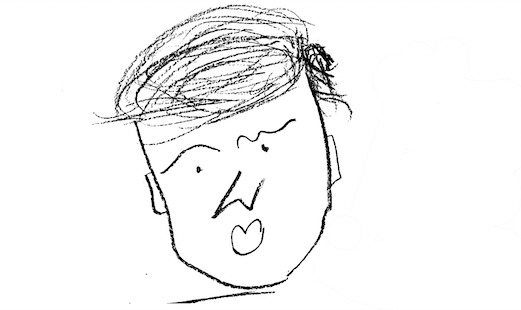When people claim this may be the worst period in history, I beg to differ. I believe the period from 1929 to 1945 when we had a Great Depression, dustbowls and a World War that killed tens of millions is not comparable to today. Shutting down the government or losing your food stamps are not equivalent to being sent to a concentration camp or the gas chamber.
Derangements are nothing new. Whenever Republicans get elected, from Richard Nixon to Donald Trump, liberals go apocalyptic, with mass protests, mob violence, and prolonged hissy fits and temper tantrums. The Radical Left hasn’t changed. These are the same people that spit on soldiers coming home from Vietnam and couldn’t side with Americans when America was attacked on 9/11. Social media has given them a bigger platform to spout their hate and propaganda.
But it used to be worse.
While the vitriol for Trump and his supporters sometimes can be frightening, it pales in comparison to what Franklin Delano Roosevelt received. Roosevelt was so reviled by his enemies, one month before being sworn into office an Italian immigrant named Giuseppe Zangara fired five shots at the future president, missing him and killing Chicago Mayor Anton Cermak and wounding four people. In 1933, Major General Smedley Butler planned an attempted coup to overthrow Roosevelt. And Roosevelt was being challenged from his party by Louisiana Governor Huey Long, a charismatic speaker who was Bernie Sanders before Bernie Sanders, railing against the millionaires and billionaires.
Where President Trump has NeverTrump Republicans and the Radical Left, Roosevelt had a unique blend of Southern Dixiecrats, wealthy bankers and industrialists that detested him. His enemies were the who’s who of the privileged class, such as the Rockefellers, Henry Ford and George H.W. Bush’s father Prescott Bush. Not to mention Hitler, Stalin and Mussolini.
The 2016 election was a cultural war between Americans clinging to the traditions and norms that made America great and leftists who believe all the things Americans love are inherently racist. Roosevelt’s 1932 election wasn’t a cultural revolution, but an economic and class one. Both the Right and Left believed in the Constitution and Judeo-Christian principles. The arguments weren’t whether to destroy what works in America but how can we preserve and improve on the American system.
While the anti-Trump sentiment is a threat to American stability, our nation has been through worse. We are nowhere near the Great Depression where unemployment was at thirty percent. However, during the Great Depression, despite abject poverty, people weren’t homeless, families stayed together and didn’t starve to death. Today in Washington, D.C. the minimum wage is $13 an hour and many work multiple jobs and still don’t have enough money when the average rent $2,265.
I consider myself a New Deal Democrat, but I’m like Howard Schultz. We don’t need a big government agenda soaking the rich. Congress should do their job and go after corruption. The government should be getting out the way and deregulating industries and creating competition, so costs get lower and cheaper.
Jeffery McNeil is a Street Sense vendor who also contributes to the Washington Examiner.




